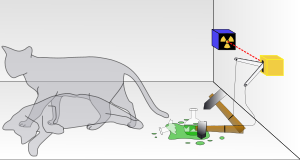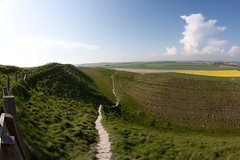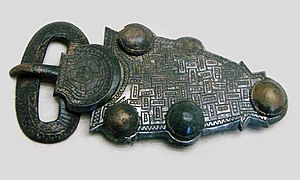 Image via Wikipedia
Image via WikipediaThe fantasy novel, Gettysburg Passage, uses elements of what could be called magic to draw in main characters living in present day suburban Washington, D.C. The primary "magic" element is the ability of real, historical people from the past to briefly interact with the modern characters, helping them try to understand a mystery involving a recently-discovered ancient artifact and a burning coal mine near the Gettysburg battlefield. Could an ancient civilization be trying to reach out to the present day to get some help in fighting an existential threat? Perhaps!
Much of this is relevant to a recent weekend family wedding trip I made with my wife, Cathy. We drove out of the Washington area going west on I-66 towards Front Royal in western Virginia. It turns out this modern highway is the exact route used by key Union and Confederate forces in the Second Battle of Bull Run. The main army of the United States could have been routed and destroyed by forces massing and marching down this road. This would have been the end of the U.S. as we know it. As I drove along, I gazed up hills and vistas that had not changed in 150 years. Soldiers from then would have easily recognized the way, even with a modern highway in place. Even the railroad from that era exists in the exact spot. As I passed through I had a strong sense of "other-ness". It was if time were interchangeable and that I could step out of the car and exchange places with men from several generations ago.
This is a strong feeling that I hope you get when you read Gettysburg Passage. It is not a Civil War book, per se. But it uses key historical figures and familiar Civil War-era places to move the narrative along at a very fast pace. The goal is finding out more about a mysterious ancient civilization. But to learn more about that civilization, you sort of have to pass through the American Civil War just a bit. I think you will enjoy the ride!
You can sample a chapter of Gettysburg Passage, $1.99, from Amazon, by going here.
More information about the book is available at Amazon here.
Read reviews at Amazon here.
Enjoy!






























